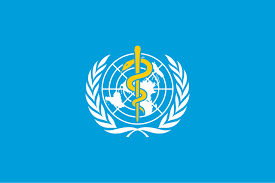
Brazil Achieves Milestone in Public Health by Eliminating Lymphatic Filariasis: WHO Celebrates Success
The World Health Organization (WHO) has officially recognized Brazil for eliminating lymphatic filariasis, a debilitating parasitic disease, as a public health problem. This achievement, considered a significant milestone in global health, was marked by a congratulatory message from WHO Director-General Dr. Tedros Adhanom Ghebreyesus.
“Eliminating a disease is a momentous accomplishment that takes unwavering commitment,” said Dr. Tedros. “I congratulate Brazil for its efforts to free its people of the scourge of this painful, disfiguring, disabling, and stigmatizing disease. This is another example of the incredible progress we have made against neglected tropical diseases and gives hope to many other nations still fighting against lymphatic filariasis that they too can eliminate this disease.”
A Long Battle Against a Persistent Threat
Lymphatic filariasis, commonly known as elephantiasis, is spread by mosquitoes and has been a source of suffering for millions worldwide. The disease leads to chronic swelling, severe pain, disability, and social stigmatization. It usually manifests in later life stages, causing lifelong complications such as lymphedema and scrotal swelling.
Brazil’s journey to eliminate lymphatic filariasis began with a national plan in 1997, which included mass distribution of antiparasitic drugs, vector control activities, and strong surveillance in the most affected areas. The country successfully achieved transmission interruption in 2017, a feat now validated by the WHO.
“This milestone is the result of years of dedication, hard work, and collaboration among health workers, researchers, and authorities in Brazil,” said Dr. Jarbas Barbosa, Director of the Pan American Health Organization (PAHO) and WHO Regional Director for the Americas. “Brazil’s extensive and unified health system, coupled with solid specialized laboratory expertise and robust surveillance, were essential to interrupt the chain of transmission, inspiring other countries to advance towards the elimination of lymphatic filariasis and other neglected tropical diseases.”
A Multi-Sectoral Approach to Public Health
The elimination of lymphatic filariasis was one of the primary goals of the Brasil Saudável program, a multisectoral initiative aimed at ending socially determined diseases through a whole-of-government approach and the active participation of civil society. Launched in February 2024 by President Luiz Inácio Lula da Silva, the program emphasizes a comprehensive strategy involving multiple sectors, including health, social development, and education.
The Brasil Saudável program was inaugurated during a ceremony attended by Dr. Tedros Adhanom Ghebreyesus and Dr. Jarbas Barbosa. In the post-elimination phase, Brazil, PAHO, and WHO will continue to monitor the situation to prevent any resurgence of infections.
Global Recognition and Progress
With this achievement, Brazil joins 19 other countries and territories validated by WHO for eliminating lymphatic filariasis as a public health problem. These include countries from various regions such as Malawi and Togo in Africa; Egypt and Yemen in the Eastern Mediterranean; and Bangladesh, Maldives, and Thailand in South-East Asia. In the Americas, Brazil becomes the second country after Costa Rica to eliminate the disease.
Globally, Brazil is now the 20th country to have eliminated lymphatic filariasis and the 53rd to have eliminated at least one neglected tropical disease (NTD). This accomplishment aligns with the 2021-2030 WHO roadmap targeting the prevention, control, elimination, and eradication of 20 diseases and disease groups by 2030.
Understanding Lymphatic Filariasis and the Path to Elimination
Lymphatic filariasis is caused by microscopic, thread-like parasitic worms transmitted to humans through mosquito bites. The infection is usually acquired in childhood and causes hidden damage to the lymphatic system, eventually leading to visible manifestations such as lymphedema and elephantiasis.
The WHO recommends preventive chemotherapy strategies, primarily mass drug administration (MDA), to eliminate lymphatic filariasis. MDA involves administering an annual dose of medicines to the entire at-risk population, effectively reducing the density of microfilariae in the bloodstream and preventing the spread of the parasite to mosquitoes.
Despite progress, lymphatic filariasis remains a challenge in certain regions. As of 2023, approximately 657 million people in 39 countries and territories were living in areas that still require preventive chemotherapy to curb the spread of the disease.
Looking Ahead: Sustained Vigilance and Continued Global Efforts
Brazil’s success in eliminating lymphatic filariasis serves as an inspiration for other nations still grappling with the disease. WHO’s recognition not only highlights Brazil’s commitment to public health but also underscores the importance of collaborative efforts, robust healthcare systems, and comprehensive disease surveillance to achieve similar milestones worldwide.
While this victory brings renewed hope, the fight against neglected tropical diseases continues, demanding sustained efforts and global cooperation to alleviate the human and economic burdens these diseases impose on the world’s most disadvantaged communities.